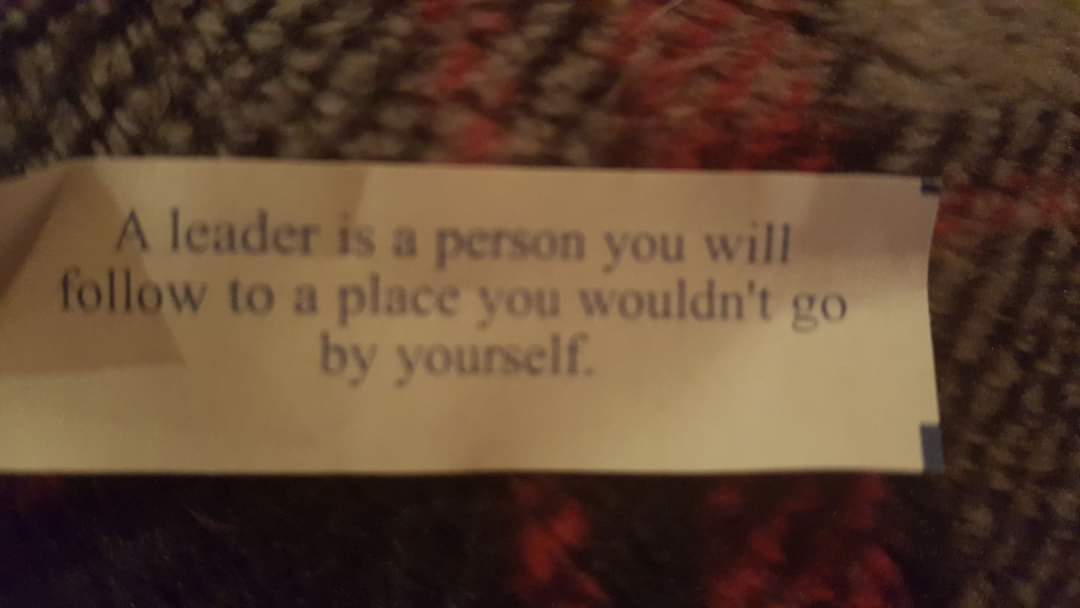 After asking the question last week about what teachers believe would help with their own retention in the education field, I got a lot of comments, both in person, via text, Twitter, Facebook, and LinkedIn. Many moons ago, Frederick Herzberg introduced his Motivator-Hygiene theory (which, to this day, still has me stymied about the use of the word "hygiene" in this context). He theorized that employees in the workplace fell into two categories: hygiene and motivation (Herzberg, 1964). See? I told you it was more than a minute ago. I was but a glimmer in the eyes of my parents at this time (please refrain from ageism comments...it will just make me sad). While he found that what he called "hygiene issues" (such as salary) decrease employees' dissatisfaction with their working environment, "motivators", such as recognition and achievement, tended to make workers more productive, creative and committed. I am curious if this is still the case, or if it has changed in the last 50-some-odd years. What I do know is there is no shortage of teachers who are speaking out (and loudly, in many cases) about their frustration with district office (or central office, whatever you call it in your area) personnel being out of touch with the frustrations and challenges that teachers are facing. I have so appreciated the candor with which teachers have expressed their exasperation and disappointment, as it directly informs the work I do, both in working with administrators and school leaders around the world and in teaching the courses required for educators to get their Educational Leadership master's degree. In one course I am currently teaching for Grand Canyon University, the question was posed asking potential/future school leaders what their interactions with their supervisors have been like. The responses range from, "What interactions? Our administrators are so busy putting out fires, there is no time for interaction with teachers" to "COVID has changed the dynamics somewhat, but our district leaders have no idea what I do in my own classroom". The blessing is that some of my students (teachers from all over the country) have noted that their administrators engage and interact with teachers on a consistent basis. While there are a good number of administrators who are asking how to get teachers to show their students that they are there for them in this time of need, the frustration from teachers seems to surround the notion that, "We are told to be the light and saving grace for our students, but we, ourselves, are drowning out here, and no one is sending us a life raft." I noted that many teachers say things like, "My district administrators have never been in my classroom. They are out of touch" and "I want to become that administrator who goes into classrooms on a regular basis. My school leaders seem to be so busy telling us why we have to wear suits and ties and dresses and heels, they are out of touch with what we really do." So, what makes a great leader? I have been asking this question since I completed my dissertation in 2012 on "Character and Competence", in which I asked teachers (and got over 550 responses) what they valued in their principals more: character or competence. Stephen M.R. Covey (Stephen Covey's son) had mentioned in his book "Smart Trust" (Covey, 2012) that he believed character and competence blend together to build a trusting relationship between school leaders and teachers. I was curious to find out if one of the two of those was more important to building trust than the other. What I found out was that those teachers who trusted their building leaders trusted the integrity of the leader a bit more than their competence. What does this mean? They remarked things like, "I'm fine if my principal doesn't know the answer to a question. We all know they don't know everything. So quit acting like you do, and simply tell us you will find out the answer....and then follow through." I've encompassed several responses into this "answer" above, but I do believe the teachers are craving feedback and reflection conferences and support from their supervisors, with integrity and effective communication (which, in many cases, simply needs to be taught---that is one of my favorite jobs). A fortune cookie I read today said: "A leader is a person you will follow to a place you wouldn't go to yourself." Yessssss!! This speaks volumes, I believe. If Herzberg's theory holds true, teachers would love to have increased pay, for sure, and I don't know one teacher who would say, "Nah, I'm good. I'm getting paid enough. No need for more." But the pay is only a part of the solution, I hear and see. Being supported, having qualified substitutes when the teachers get COVID (yes, teachers get sick, too, although many of us have been known to say, "It is WAY more trouble than it's worth to simply go into school sick than to try to prepare for a substitute when you are vomiting or coughing up a lung"), and simply knowing the district has their backs on COVID restrictions that (inevitably) tend to change on a dime (which, by the way, is what principals say is taking up so much of their time---dealing with the ever-changing COVID protocols). When I was a principal, I used to say to my supervisors, "I don't mind being given a directive. What I mind is being given a directive, then once a parent calls to complain about the protocol we are following, the district administrator(s) caves in and backs the parent versus the teacher or principal, making me look like 'change for a nickel'." Educators need so much grace right now. What does it take to be a leader teachers will follow into unchartered territory?
Thanks so much for everything you do!! I need those students with whom you are working to grow up to be knowledgeable and compassionate, as Dave and I will need some of them working at the assisted living facilities (or working in in-home care for us) in 20 - 30 years. Happy Communicating, Shelly Covey, S. M. R., Link, G., & Merrill, R. R. (2012). Smart trust: creating prosperity, energy and joy in a low-trust world. 1st Free Press hardcover ed. New York: Free Press. Herzberg, F. (1964). The motivation-hygiene concept and problems of manpower. Personnel Administration, 27(1), 3–7.
0 Comments
 Toby Keith sings these words, and they couldn't be more pertinent to the education field than right now. So many people are writing blogs and talking about the pandemic of teacher resignations that many say are due, in part, to the COVID pandemic. If the goal of 2021 was to get students back to face-to-face classrooms, the goal of 2022 seems to be to get teachers to stay in the profession. A teacher friend of mine just told me that, as much as she loves her special education students, if one of her own children wanted to go into the field of education, she would do everything to talk them out of it. So, I'm not here to write a blog about the problem. I'm here to ask teachers to tell us exactly what they need. While handing out hot beverages seemed to work for Sheldon on "Big Bang Theory" (it was the only thing he knew to do when someone was ailing), I don't think a gift card for a Caramel Whipped Coffee (I know; I'm not a coffee drinker, so I'm showing my ignorance about names of fancy hot beverages) is going to solve this predicament. I have the pleasure and honor of working with public and private schools and districts all over the world, and while I hear gratitude for the strategies we work on to make teaching and learning more effective ("this is the only workshop that has ever given me strategies I can take into the classroom tomorrow" one teacher in Nebraska told me a few weeks ago), I still feel as though what I'm offering is falling short. I was listening to the song "Hammer and a Nail" by the Indigo Girls, and the lyrics say: "I gotta get out of bed and get a hammer and a nail Learn how to use my hands, not just my head I think myself into jail Now I know a refuge never grows From a chin in a hand in a thoughtful pose Gotta tend the earth if you want a rose Had a lot of good intentions Sit around for fifty years and then collect a pension Started seeing the road to hell and just where it starts But my life is more than a vision The sweetest part is acting after making a decision I started seeing the whole as a sum of its parts" To get the full extent of their message, listen for yourself by clicking the song title above. I do believe sometimes we think ourselves in a jail, meaning (to me, anyway) we dither around about a topic instead of truly doing something. A chin in my hand engaged in a thoughtful pose (I love that line) takes up brain space but it doesn't really DO anything. Think tanks typically don't solve problems; they talk about problems. Let's do something to solve this mammoth-sized issue. More of the lyrics say: My life is part of the global life I'd found myself becoming more immobile When I'd think a little girl in the world can't do anything A distant nation my community A street person my responsibility If I have a care in the world I have a gift to bring We all can do something or we can do nothing. I truly want to do something, so I'm asking educators to tell me (and my readers) what will help them. When we think one person can't do something, we stay immobile. My hunch is that teachers really need: *support from their school leaders and the community at large *taking non-emergency paperwork off their hands until we get out of this mess *engage them in professional learning that they can truly use, not some new "program" or "curriculum" *respect the tremendous efforts they are putting forth Now, what specifically does this look like and what else should be on this list? Tell me, and I will share it on Facebook, Twitter, and LinkedIn. I want to help. As the Indigo Girls say, "If I have a care in the world, I have a gift to bring". So many things, for my dear friend and former administrative assistant (when I was a principal), Cindy Dooley, and me make sense in song lyrics. When we worked together, one of us would say something, and the other would turn it into a song lyric. Oh, what fun we had, doing the hard work that needed to be done. I'd love to hear what you believe is needed to help teachers want to stay in this amazingly complex but incredibly gratifying field, whether it is through a song lyric or simply words explaining your idea for a possible solution. It doesn't have to solve everything; it may just be a small part, but even small parts put together create a "whole". Please hear my sincerity in asking for your ideas. Happy Communicating, Shelly  Desmond Tutu, who passed away last week, was one of my heroes. In an interview, he was asked how he could remain an optimist even when bad things were happening all around the world. He negated that notion that he was an optimist, but stated that he was rather a "prisoner of hope". He felt like optimism was too wishy-washy, while being a prisoner of hope meant we continue to do the right thing (with compassion, integrity, and goodness) because we innately KNOW that things will get better. I've always been an almost apologetic Pollyanna, thinking that very way. Now, after hearing Desmond Tutu's interview and hearing our priest in church this morning talk about this notion of being a prisoner of hope, I think I need to quit being apologetic about my belief that things will, indeed, get better. And, in truth, it really isn't just a belief. I am charged with and commanded (and even imprisoned, to use Tutu's words) to know that hope is eternal. Amidst COVID, death of family members, friends being diagnosed with cancer, bi-partisan craziness, political views that not only split sides of the House but also split up families, and so many more tragic events and happenings, I still know that things will get better. When the stock market takes a nose dive, I know it will turn at some point---it has to. So, how has being a "prisoner of hope" impacted me? 1. I freak out, talk it out, then give it up: I have been known, a time or two, to want things to be perfect (I want to get to where I need to go on time, I want to be the perfect presenter, I want to control when something is going to be delivered, and the list goes on ad infinitum). I know when this happens that it is typically a direct result of being out of sync with my faith and serenity. When I notice it happening (for example: trying to tell the gate agent that I have to get home, as if that is going to make an airplane magically appear or magically get repaired or cleaned), I know what to do. I simply need to take a deep breath, say the Serenity Prayer, then hightail it to the nearest airline lounge, where I can get re-booked, etc. In a perfect world, I'd love to skip the "freak out" part, but I am genetically wired, I'm afraid, to go that route first. 2.Be the calm for someone who cannot: One of the biggest ah-ha moments I've had in my life is that, when I am freaking out somewhat about something I can't control, the best thing I can do to overcome this warped feeling inside me is by being the calm for someone who is currently unable. For example, when I am teaching a group of teachers or administrators, things don't always go as advertised. Sometimes, the technology isn't working the way it should; sometimes, the materials are not ready or are put together correctly; sometimes, the room we thought we would be using is unavailable, and we have to punt with a space that is less than ideal for engagement. That is the real world, and if I am going to serve as a model of what good teaching looks like, I surely had better be prepared to go with a plan B (or C or D). Being the storm does me no good, nor does it do the learners in front of me any good. I have found that, even on an airplane, when there is turbulence, and I am seated next to someone who is clearly not comfortable with air travel, I can be the voice of reason ("there is always turbulence when we begin to land in Tucson because of the mountains. It is nothing to worry about"). I pray I can remain a prisoner of hope for the entirety of my life. It sure beats the alternative. I hope you can do the same! Happy Communicating! Shelly |
Shelly ArnesonCategories |


 RSS Feed
RSS Feed